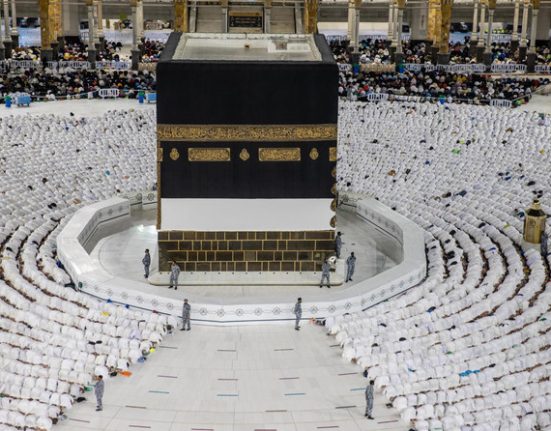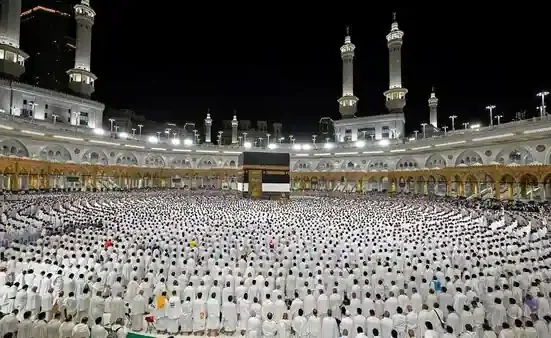Makkah, Saudi Arabia — In a significant move to enhance pilgrim welfare during the Hajj, Saudi Arabian authorities have introduced movable shade structures at the plains of Arafat, a key ritual site, to provide heat protection for millions of Muslims expected to participate in the 2025 pilgrimage.
The initiative, launched by the Saudi Ministry of Hajj and Umrah in collaboration with the Royal Commission for Makkah City and Holy Sites, comes as part of the Kingdom’s broader strategy to improve the comfort, safety, and health standards for pilgrims, especially amid rising global temperatures.
Sources within the Saudi administration confirmed that the newly deployed shades are mobile, collapsible, and heat-resistant, designed to be swiftly assembled and dismantled. They cover large swaths of open areas in Arafat, where pilgrims traditionally gather for Wuquf, the central rite of Hajj, involving hours of prayer and supplication under the open sky.
Hajj 2025 is expected to host over 2.5 million pilgrims, including thousands from Nigeria, many of whom are familiar with the intense heat of the Arafat plains. Last year, pilgrims endured temperatures exceeding 45°C (113°F), prompting calls for more proactive heat mitigation measures.
Commenting on the development, a Nigerian pilgrim board official who arrived early in Saudi Arabia to oversee logistics told KIIN360, “This is a commendable move. The heat has been a serious concern, especially for elderly pilgrims. These shades will reduce fatigue, heat strokes, and other health risks.”
Medical teams on the ground have also lauded the move, saying the shades will complement the deployment of cooling buses, misting fans, water stations, and mobile clinics already in place across Mina, Muzdalifah, and Arafat.
The innovation is part of Saudi Arabia’s broader Vision 2030 pilgrimage infrastructure agenda, aimed at improving the spiritual journey of pilgrims through technology, smart logistics, and human-centered design.
As preparations for the Day of Arafat intensify, pilgrims and officials alike have expressed optimism that the new installations will go a long way in safeguarding the spiritual integrity of the Hajj experience while upholding health and safety standards in one of Islam’s most sacred gatherings.







